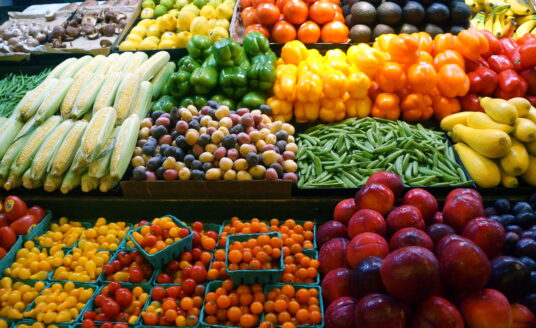When you’re a senior adult, there’s a lot more to consider when it comes to cooking up tasty meals. Your food choices can greatly influence your health and longevity. Many of us are unaware of the damage we’re doing to our bodies because we fall into eating habits based on convenience, not quality.
To make sure your senior loved one stays healthy and fit for as long as possible, here’s a helpful list of senior nutrition dos and don’ts you can refer to during your next trip to the grocery store with your mom or dad:
Items to include prominently on your menu include:
- A selection of vegetables, especially the dark leafy greens like spinach. Beans, peas, and carrots are an excellent choice, too.
- A wide variety of fruits can provide lots of vitamins and minerals, especially when they’re fresh and whole. Apples, oranges, pears, and berries like blueberries, raspberries and strawberries are all delicious options.
- Proteins including fish, lean meat, poultry, and eggs are especially important senior nutrition staples because they help maintain muscle mass, bone density and immune function. You can also find good sources of protein in nuts, beans, soy products and quinoa.
- Whole grains lower bad cholesterol, insulin levels and blood pressure. They also tend to make you feel fuller for longer, which is helpful if you’re trying to shed a few pounds. They can include whole wheat, brown rice, and oats.
- Low-fat dairy products such as low-fat milk, cheese, or yogurt are a great source of vitamin D, calcium, and potassium. Appetite often diminishes as people age, so dairy selections can be an easy way to make sure our senior loved ones get enough calories to prevent unintended weight loss while also taking in important vitamins and minerals. For those with trouble digesting dairy products, soy, rice, or almond substitutes with calcium added are an excellent alternative.
- Water is crucial for people of all ages. But just as seniors are apt to skip meals because their appetite decreases, they also may experience decreased thirst levels as they age. Dehydration can cause confusion and weakness or dizziness, all of which can lead to falls and injuries. We should be especially vigilant when it comes to dehydration if our senior loved one has recently had an illness that caused vomiting, diarrhea, or fever.
You Don’t Have to Deprive Yourself
After all, having an occasional treat is one of the simple joys in life. But moderation is always the key when it comes to maintaining a healthy diet. As we age, our bodies don’t process things like they used to. Consult your doctor to find the right balance for you and try to limit these types of indulgences:
- Added sugars. Ingredients like fructose or corn syrup, which are often ingredients in many packaged snack foods and sugary drinks can have dire consequences if overconsumed by senior citizens including obesity, heart disease, type two diabetes, and cancer. They can also cause inflammation which aggravates joint pain and arthritis. But how much is too much? It’s recommended that men don’t eat more than nine teaspoons a day of added sugar, while women shouldn’t consume more than six teaspoons.
- Trans fats, including partially hydrogenated oils, which are added to some processed foods to make them last longer, may cause our senior loved ones to experience issues with their heart and cardiovascular systems. Those with elevated levels of trans fats in their blood are more likely to develop dementia than those with lower levels.
- Sodium, also known as salt, is so common we often don’t even know how much we’re eating. But it can be found in alarmingly high levels in processed and prepackaged foods. This can be a problem for seniors especially, who may only cook for one person and often turn to the microwave for an easy meal. While people below the age of 50 can consume 1.5 grams of sodium a day safely, seniors don’t tolerate it as well as their younger counterparts and should limit their salt intake to 1.2 grams. That total adds up quicky if they eat canned and frozen dinners, and snacks like potato chips.
- Saturated fats are found in meat, cream, and butter. Plant-based fats are better for your heart. According to the American Heart Association, total saturated fat content should be kept to five percent or less of total caloric intake.
- Alcohol can’t be processed by older bodies as well as it is handled by younger ones, meaning less of it affects seniors more profoundly. Over time, alcohol can cause problems for organs including the liver and heart, lead to cancer and immune system disorders and can worsen conditions including high blood pressure, diabetes, ulcers, mood disorders and memory loss.
Do you have questions about whether your senior is getting the proper nutrition? Check with their physician for assistance in helping your senior loved one maximize their well-being through a healthy diet plan.
Explore our health & wellness blog for more senior nutrition tips.
Want to find out more?
If you’d like to stay up to date with Bethesda Health Group, sign up here to receive our blog and newsletters!
"*" indicates required fields
Related Articles
Want to find out more?
If you’d like to stay up to date with Bethesda Health Group, sign up here to receive our blog and newsletters!
"*" indicates required fields



